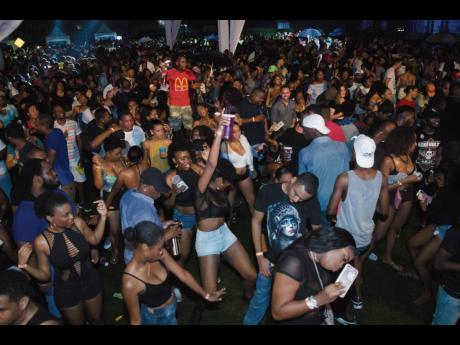Bellamy proposes phased reopening of entertainment industry
For almost three months, the COVID-19 pandemic has caused a global intermission for social activities and halted the production capabilities of various industries globally. Among the hardest hit in Jamaica are the Tourism and Creative Industries. The staging of events seems to be a distant memory that has left an entire eco-system crippled from the opportunities and profits that are usually available in our once-thriving events scene.
Data collected through the local municipalities and the Ministry of Culture, Gender, Entertainment and Sport have revealed that over the past seven years, there are, on average, 20,000 events held in Jamaica annually. A recent survey of professionals within our local entertainment industry, which was done in the March 2020 also by the Ministry of Culture, Gender, Entertainment and Sport, estimates that entertainment practitioners will experience losses of up to J$26.182 billion dollars due to the closure of the industry. This puts into perspective the importance of the Creative Industries, the contribution they make to both the economic livelihood of Jamaicans and the therapeutic value they bring to those who enjoy the experiences curated through these events.
Now, by no means am I saying that we should not have put the current measures in place to assure the safety of all Jamaicans. Neither am I saying that we should move swiftly to reopen the entertainment sector. But in light of the losses already being experienced by entertainment practitioners and the impending losses that the sector will continue to experience in the coming months, it is imperative to establish new protocols to enable the controlled and phased resumption of the industry.
The drive to establish these protocols for the reopening of the entertainment sector is hinged on ensuring that the most vulnerable players in the sector are considered. These include solo proprietors, who may rely on the large-scale events and festivals to provide their service to either the event promoter or the patron; as well as other industries such as fashion and gastronomy, which work together in the execution of event experiences. In so doing, let us not forget the unique experience created by the soup/jerk/peanut men and women, the technical and logistics companies and their employees, decorators, bar operators, sanitisation practitioners, and disc jockeys, just to mention a few.
In addition, the Government has also lost revenue from the payment of permits and other requisite services at events such as security and safety services inclusive of the police and fire departments and local municipalities.
RECOMMENDATIONS
My recommendation is that a task force be created to handle the phased reopening of the entertainment sector in Jamaica. For efficiency, I believe that the members should be drawn from the local municipalities islandwide, the Ministry of Health, the Ministry of Culture and the Ministry of Tourism, the Jamaica Constabulary Force, the Jamaica Association of Composers Authors and Publishers, the Jamaica Music Society, and the Jamaica Fire Brigade.
The task force would evaluate and approve specific events as we move through the COVID-19 period. Health protocols that take into consideration the specifics of the entertainment industry would need to be established. These would include, but not be limited to, the use of temperature checks, the wearing of masks, having sanitisation stations to include clothing and shoes, social distancing based on venue stipulations, full protective gear for all staff, and a medical zone.
Phase One would also have protocols that approve only outdoor events, weekly approvals in light of possible health-protocol changes that the Government may implement, and zoned areas where events can be hosted for the protection of residents within the communities.
Phase Two may include a move to increase the number of persons who may be permitted into a venue (based on the progression of the disease), a move to include indoor venues, with increased efforts to adhere to the sanitisation protocols, with sanctions for the promoter and patrons who do not follow the approved guidelines.
Based on an objective evaluation of the two previous phases, towards the end of 2020, Phase Three could entail even larger events to gradually bring our entertainment sector back to a state of vibrancy.
As conscientious leaders and entertainment professionals, there can be a balance between economic activity within the sector without compromising the health and safety of our citizens. There are thousands of lives that are directly and indirectly linked to this very important sector, and without it, the nation stands to lose economically and culturally.




